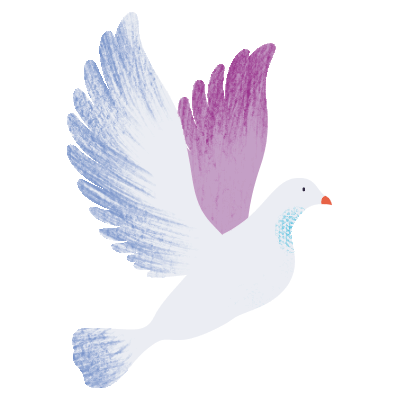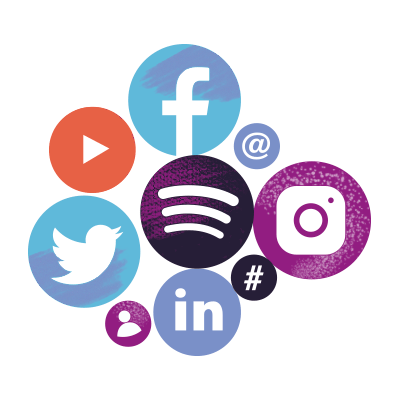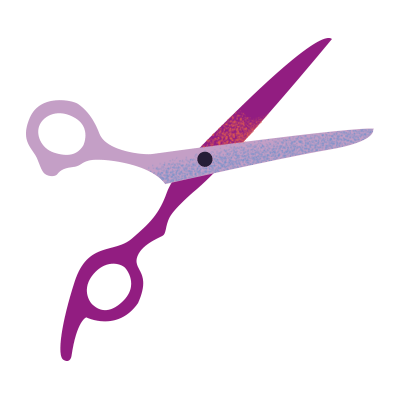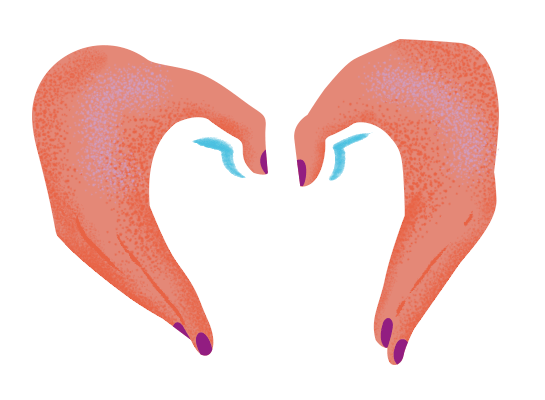When women's rights are respected, they are better able to contribute to their families, communities and countries.
Unfortunately, every issue that impacts women’s access to a better life — unequal pay, inequitable access to quality education, gender-based violence — is currently under-resourced and underfunded globally.


AUDACIOUS, INNOVATIVE AND SUSTAINABLE SOLUTIONS TO ACCELERATE GENDER EQUALITY.

We identify critical intervention areas that need extensive support and funding to advance women's rights and gender equality.
WE WORK ACROSS THE
Global South
IN COLLABORATION WITH 22+ PARTNERS

Our projects are thoughtfully developed to empower women and girls to have more agency over their lives and future.
GIRLS CAN CODE
AS A RAY OF HOPE FOR AFGHAN GIRLS
78
Students completed our coding training before the Taliban announced new bans
33
Young women were sponsored in their university studies in Computer Science



300
Students received a 3-month scholarship to pay tuition fees to prepare for the national university entry exam


21
Trainers completed our training at institutes connected to TVET (Technical Vocational Education and Training)
In Afghanistan, Girls Can Code (GCC) trains girls pursuing secondary education in English, computer literacy, and coding. It’s designed to not only develop tangible skills to improve their career prospects but also instil confidence and belief in the students and their families that girls can be equally valuable and relevant in the workforce and for society.
The Taliban’s return to power in 2021 has had a devastating impact on Afghan women and girls, decimating their rights. Girls are barred from secondary school and women are banned from most jobs.
Determined to continue to make a difference in Afghanistan, we adapted our in-person programme to now provide online training in web development, coding, and computer literacy to girls in secondary school.
When we started online, it was very effective, we made great progress and fortunately completed it successfully. When the new bans were announced, classes had to stop (end of 2022). These bans have caused severe mental and psychological distress, depriving women of their rights. A society can never truly progress without women being given equal opportunities.
— Z.F., Student

Being flexible and agile with our strategies can help us better navigate the uncertainty within the country.

Diversifying our interventions from primary education to vocational training to work around bans.
DISRUPTIVE MEDIA
RESHAPING GENDER NARRATIVES
1.2M
Followers of Khateera and Radio Nisaa’s social media channels
400K+
Listeners tuned into Radio Nisaa for their inspirational content


Over the past 11 years, we have incubated 4 powerful initiatives on our radio and digital media channels.
27
creators and influencers engaged since 2011
Women have historically been depicted as weak, submissive, and having little to no agency, in the media. Our Disruptive Media programme is changing gender-biased behaviour and mindsets by partnering with progressive platforms and content creators in the Middle East and North Africa (MENA) region to create bold, powerful, educative content.
We incubated Khateera — a women-led and women-centric social media platform and content creation house — and helped it transform into an independent entity.

We worked with them to secure funding from organisations like Open Society Foundations and supported production of Season 2 of the immensely popular YouTube series Smatouha Minni (You Heard From Me) — a satirical, progressive series which reached almost 20 million views in Season 1.
Radio Nisaa is the first women-led community radio station in Palestine. It continues to successfully operate in the region, broadcasting a variety of inspirational shows that puts women’s voices and issues on the public agenda.

“With seed funding from Womanity, we created a platform to portray the positive role women play in Palestinian and Arab societies. After 13 years, we have 400,000 listeners in Palestine. In 2022, we developed Nisaa Media Incubator to train and mentor young Palestinian journalists and provide them access to networks to develop their media start-ups.”
— Maysoun Odeh Gangat, Founder and Managing Director, Radio Nisaa

Media interventions need to be highly localised and sensitive to the cultural and political nuances of the region(s) in which they operate.

Empowering local voices is key to bringing about true social change. While in the beginning, we provided hands-on support to develop content, we learned that it's critical to have content and platforms owned locally by women.
WOMEN LAND RIGHTS
EMPOWERING WOMEN IN RURAL INDIA
USD
61,595
Women made aware of their land rights
$370K
Government funds unlocked

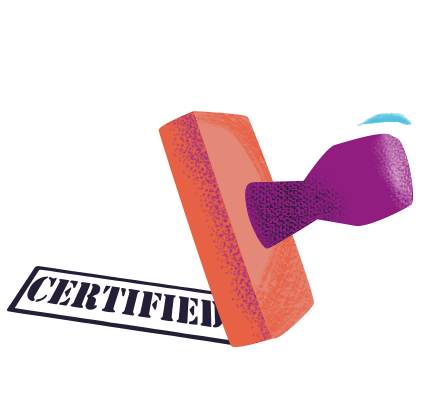
7,560
Our NGO partners reached over 61,000 women and 45,000 men across more than 970 villages in 6 states.
Women received land access / control / ownership
A powerful programme to address systemic gender inequality and lack of economic empowerment of women in India. Our Women Land Rights (WLR) programme has been developed in consultation with experts and on-ground partners. It enables rural women to access land rights and ownership, helping them become more independent, self-reliant, and financially secure.
2022 helped us better understand the nuances of how deeply entrenched patriarchal and sociocultural norms play a key role in women demanding (or not) their land rights.
We partnered with NGOs and local communities to enable them to create awareness for WLR and develop locally sustainable models. Creating visibility for women’s land rights and championing conversations on gender equality is critical to bring about change.
CHAMPA
Meet



WLR 101
We partnered with The Working Group for Women and Land Ownership (WGWLO) to offer a free 90-hour course on women and land rights in India. It aims to provide in-depth knowledge on women’s land rights including the various laws, procedures, land-related government documents and approaches, and communications collateral.

“Womanity, though a new entrant, has already carved a niche in India’s Women and Land space with their distinct approach. Our key takeaways come from their open mindset to listen, learn and co-create solutions with stakeholders. Womanity is crafting and expanding a diverse collective that will surely disrupt and transform women’s land relations.”
— Pranab Ranjan Choudhury, Associate Director, Centre for Land Governance

Involve men from families and the community so they can serve as allies and advocates for women, challenging discriminatory attitudes and promoting gender equality.

Slower interventions in certain communities can help achieve more lasting change in the long run.
WOMANITY AWARD
ENDING THE CYCLE OF
6
Countries in the Global South: Brazil, Cape Verde, India, Lebanon, Mexico, South Africa


1 in 3
Women worldwide has been subjected to physical and/or sexual intimate partner violence or non-partner sexual violence in their lifetimes (WHO:2021).
Preventing violence against women and girls (VAWG) is crucial to promoting human rights, health and well-being, economic empowerment, social justice, and ending intergenerational transmission of violence.
The Womanity Award for prevention of violence against women and girls supports organisations in the Global South to work together to adapt evidence-based initiatives across their countries.


The 4th edition of our Womanity Award focuses on the prevention of domestic violence. In early 2022, the two women's rights organisations awarded — Themis Gender Justice and Human Rights (Brazil) and Associação Cabo-Verdiana de Luta contra a Violência Baseada no Género, ACLCVBG (Cape Verde) — kicked off their 3-year partnership to adapt an intervention developed in Brazil to Cape Verde in West Africa.

Fla Sim pa Mudjer (Say Yes to Women) focuses on legal empowering women community leaders to become agents of change and end domestic violence. Many key stakeholders — including the Minister of Justice, local authorities, and the University of Cape Verde — have pledged their commitment.

2022 also saw the culmination of the 3rd edition of the Womanity Award. The awardees Safetipin (India) and Soul City Institute for Social Justice (South Africa) — with the support of Fixed (South Africa) — worked together in a 3.5-year partnership towards making Durban, which is part of the eThekwini Municipality in South Africa, a safer and more inclusive city for women and girls.

Flexibility is critical and our partners benefitted from not only our financial support, but also our mentorship. Being adaptable and responsive to their needs and circumstances resulted in greater impact.

Field visits can greatly help in understanding the context of the adaptation, the dynamics between the different partners, grasping the nuances of each of their work, and facilitate deeper connections.


ADVOCATING FOR CHANGE
through dialogue
We leveraged media and strategic narrative-building to mobilise greater support for gender equality at a systemic level. We authored articles in leading publications and participated in key panel discussions to promote dialogue and education around challenges faced by women and girls around the world.

AT THE HEART OF OUR SUCCESS IS YOUR INCREDIBLE GENEROSITY AND SUPPORT
Support
We are grateful to our partners, donors, and collaborators. their valuable time, wise counsel, and impactful collaborations are key to fuelling our mission.

“COMO Foundation’s mission is to partner with organisations to close the opportunity gap for women and girls. The Womanity’s India Land Rights Programme is an audacious programme that is well-aligned with our goal of placing women as change agents to tackle a fundamental right for marginalised women in India.”
— Jeanette Lai, Associate Programme Director, COMO Foundation
To support our work, get in touch with aurelia@womanity.org







